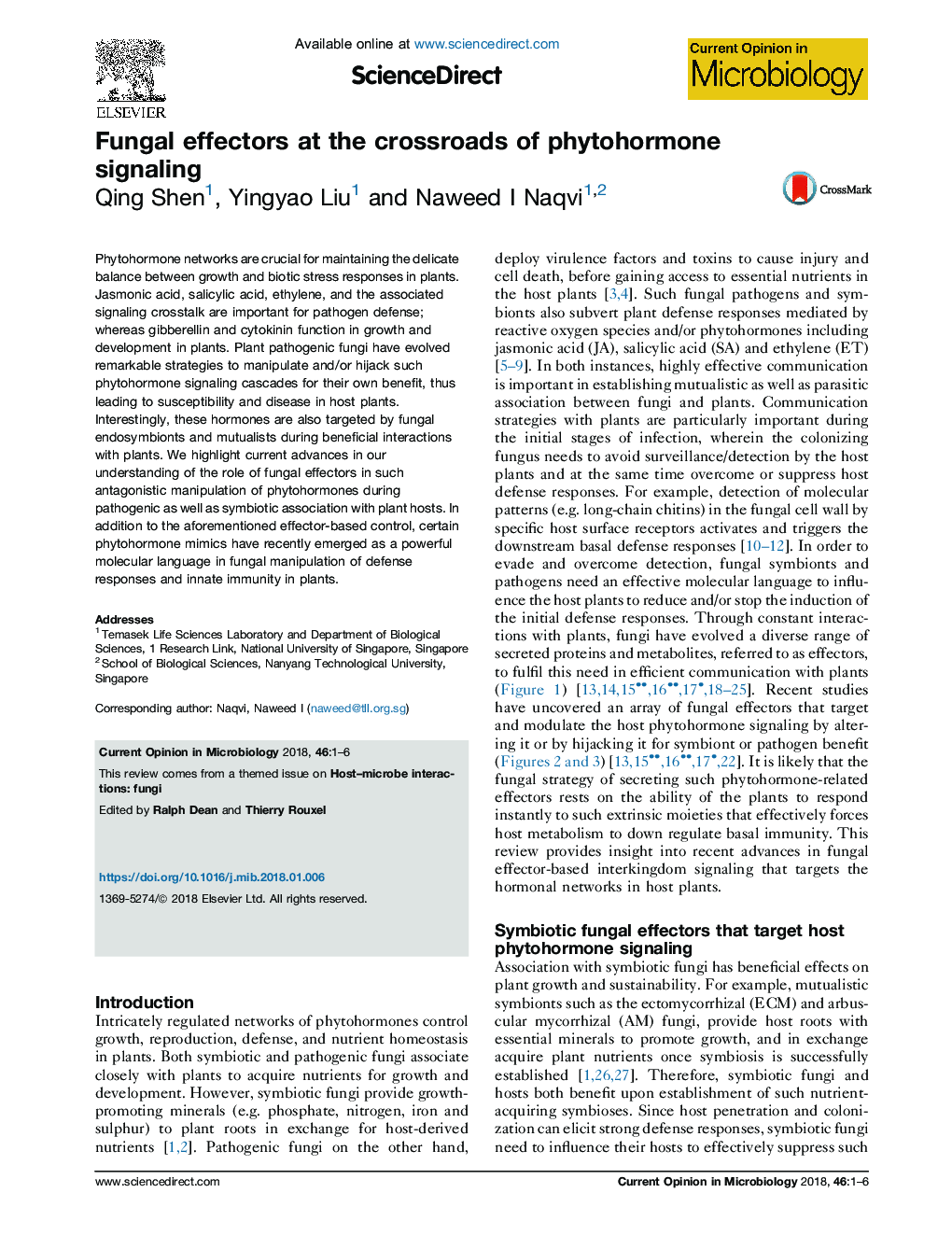| Article ID | Journal | Published Year | Pages | File Type |
|---|---|---|---|---|
| 8745009 | Current Opinion in Microbiology | 2018 | 6 Pages |
Abstract
Phytohormone networks are crucial for maintaining the delicate balance between growth and biotic stress responses in plants. Jasmonic acid, salicylic acid, ethylene, and the associated signaling crosstalk are important for pathogen defense; whereas gibberellin and cytokinin function in growth and development in plants. Plant pathogenic fungi have evolved remarkable strategies to manipulate and/or hijack such phytohormone signaling cascades for their own benefit, thus leading to susceptibility and disease in host plants. Interestingly, these hormones are also targeted by fungal endosymbionts and mutualists during beneficial interactions with plants. We highlight current advances in our understanding of the role of fungal effectors in such antagonistic manipulation of phytohormones during pathogenic as well as symbiotic association with plant hosts. In addition to the aforementioned effector-based control, certain phytohormone mimics have recently emerged as a powerful molecular language in fungal manipulation of defense responses and innate immunity in plants.
Related Topics
Life Sciences
Immunology and Microbiology
Microbiology
Authors
Qing Shen, Yingyao Liu, Naweed I Naqvi,
